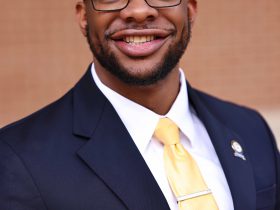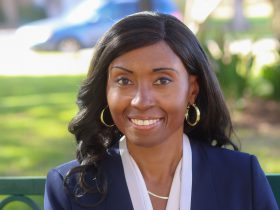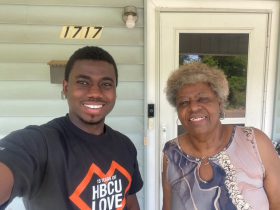by Aron Smith
(JACKSON, Miss.) – When Taylor Hardy arrived at Jackson State University (JSU) during the COVID-19 pandemic, she brought more than her luggage. As a first-generation student and the only daughter in her family, she struggled with anxiety and unspoken challenges.
“I was nervous and anxious,” Hardy recalled. “Leaving home was hard, especially being the only baby girl.”
As a youth, educators recognized Hardy’s need for extra time on assignments and tests, often providing necessary accommodations in the absence of an official diagnosis of a learning disorder.
During Hardy’s sophomore year at JSU, her chemistry professor Teresa Demeritte, Ph.D., noticed that Hardy would choose the correct responses on paper but mark the incorrect choice on bubble sheets.
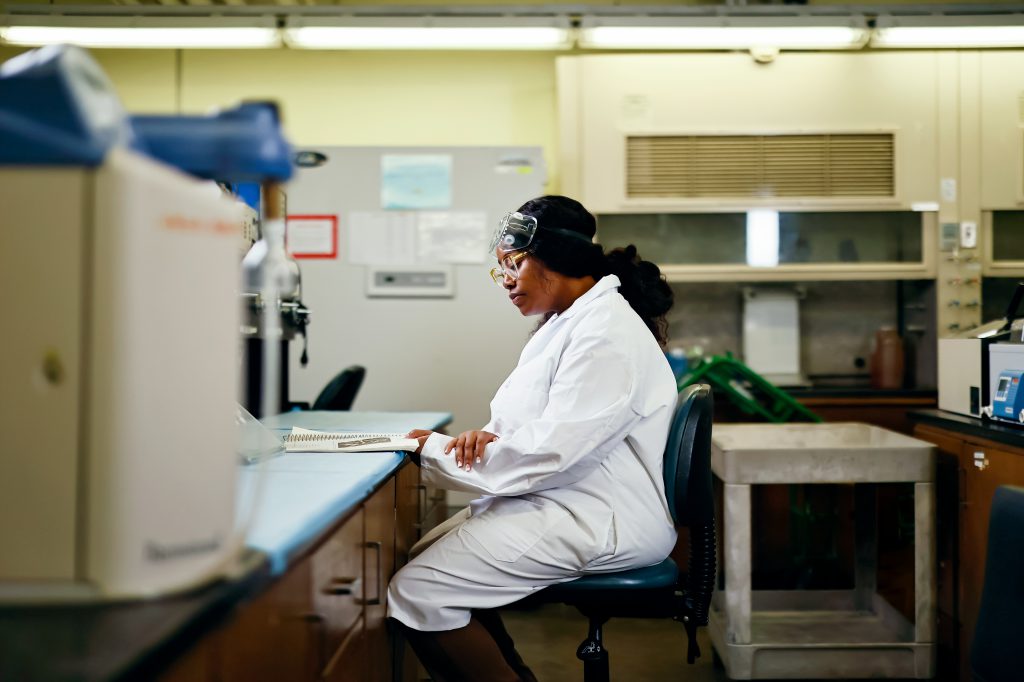
(Aron Smith/University Communications)
“She pulled me aside and said, ‘I believe there is something more going on here,'” Hardy recalled. “She introduced me to the [University’s] Office of Accessible Education and Resource Center (OAERC), and that was when everything began to change.”
Testing at JSU’s Assessment and Psychological Services Center confirmed that Hardy had dyscalculia and PTSD due to the personal loss of her brother, who passed away in 2021. The diagnosis brought her both relief and new complexities.
“At first, I doubted myself,” she admitted. “But then I realized I’d come this far without knowing. Now that I understood what was happening, I could get the help I needed.”
Navigating Dyscalculia
Dyscalculia is a learning disorder characterized by difficulty understanding numbers and mathematical concepts. Individuals may struggle with basic arithmetic and unintentionally transpose numbers. According to PsychCentral, about 3% to 7% of the population is affected by dyscalculia, making awareness and support crucial for student success.
A Holistic Support System
After her diagnosis, OAERC ensured essential adjustments were available for Hardy. Dr. Arron Richardson, assistant director of OAERC, highlighted the vital role of ensuring students have the resources and guidance they need to thrive.
“Taylor’s journey exemplifies the resilience we aim to nurture in every student,” he said. “When we provide accommodations, like extended time on tests or assistive technology, students like Taylor show that these are tools meant to unlock their full potential.”
Since then, Hardy’s academic performance has significantly improved. “My grades from freshman year compared to now are even better,” she noted.
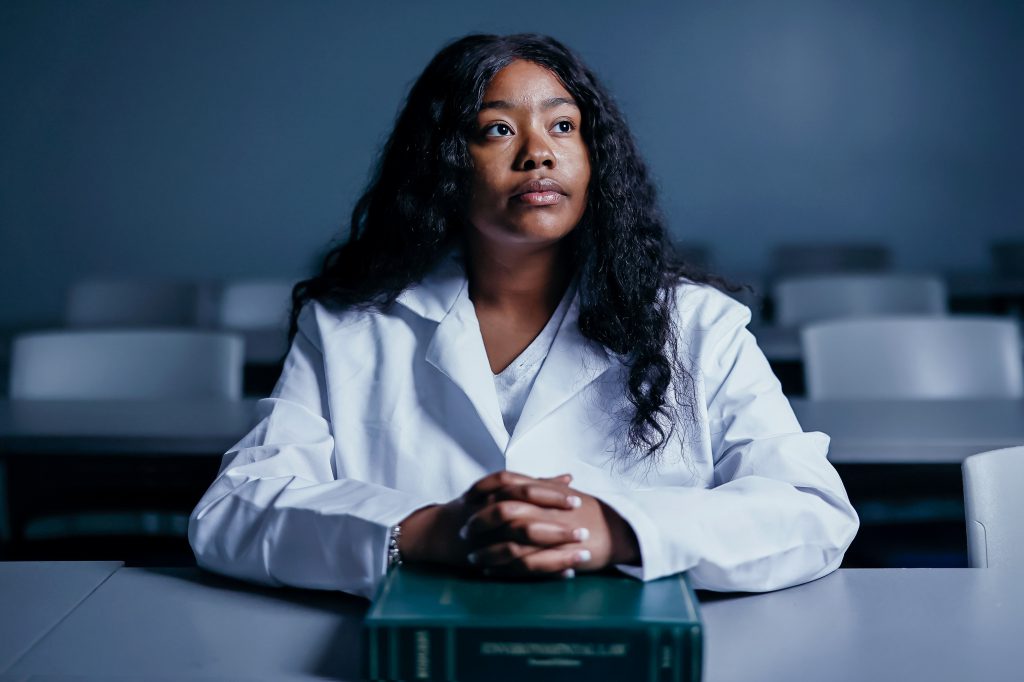
Determined to overcome PTSD and grief, Hardy found hope and healing by seeking help from the Latasha Norman Center for Counseling Services.
“They taught me to understand grief and its stages,” Hardy said. “Counseling helped me set healthy boundaries and equipped me with coping mechanisms.”
Antonio Horton, director of the center, emphasized creating a culture of care. “When students come to us, the first step is allowing them to just feel,” he said. “Our role is to help them identify solutions and equip them with tools to regain control.”
Hardy also found mentorship through the Career Services Center and the Center for Service, where Executive Director Lashanda Jordan, Ph.D., became a guiding force.
“Dr. Jordan and others have been like a superhero to me,” Hardy said. “They taught me to set boundaries, accept help and strengthen my relationship with God.”
Jordan emphasized mutual growth from mentorship. “It’s important that our students see our hearts so they know they have people to lean on,” she said.
Inspiring Future Generations
As Hardy prepares to graduate, she reflects on her journey with gratitude.
“I’ve learned that life’s challenges don’t have to stop you. Despite all the trials and tribulations, I still maintained the Dean’s List,” she said proudly.
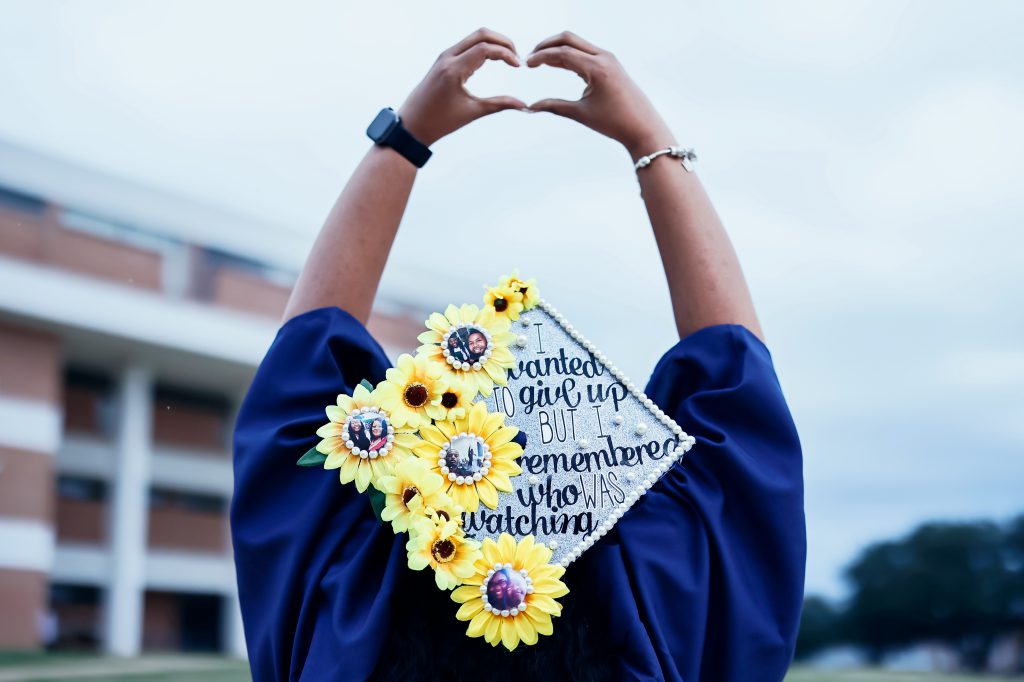
Hardy plans to become a pediatric dentist specializing in special needs care and aims to mentor other HBCU students. “I want to teach them what I wish I had known and show them they can achieve their dreams, no matter the obstacles.”
Her message to others facing similar trials: “You are your only stopper,” she said. “I’m a product of what happens when you don’t allow yourself to stop.”




